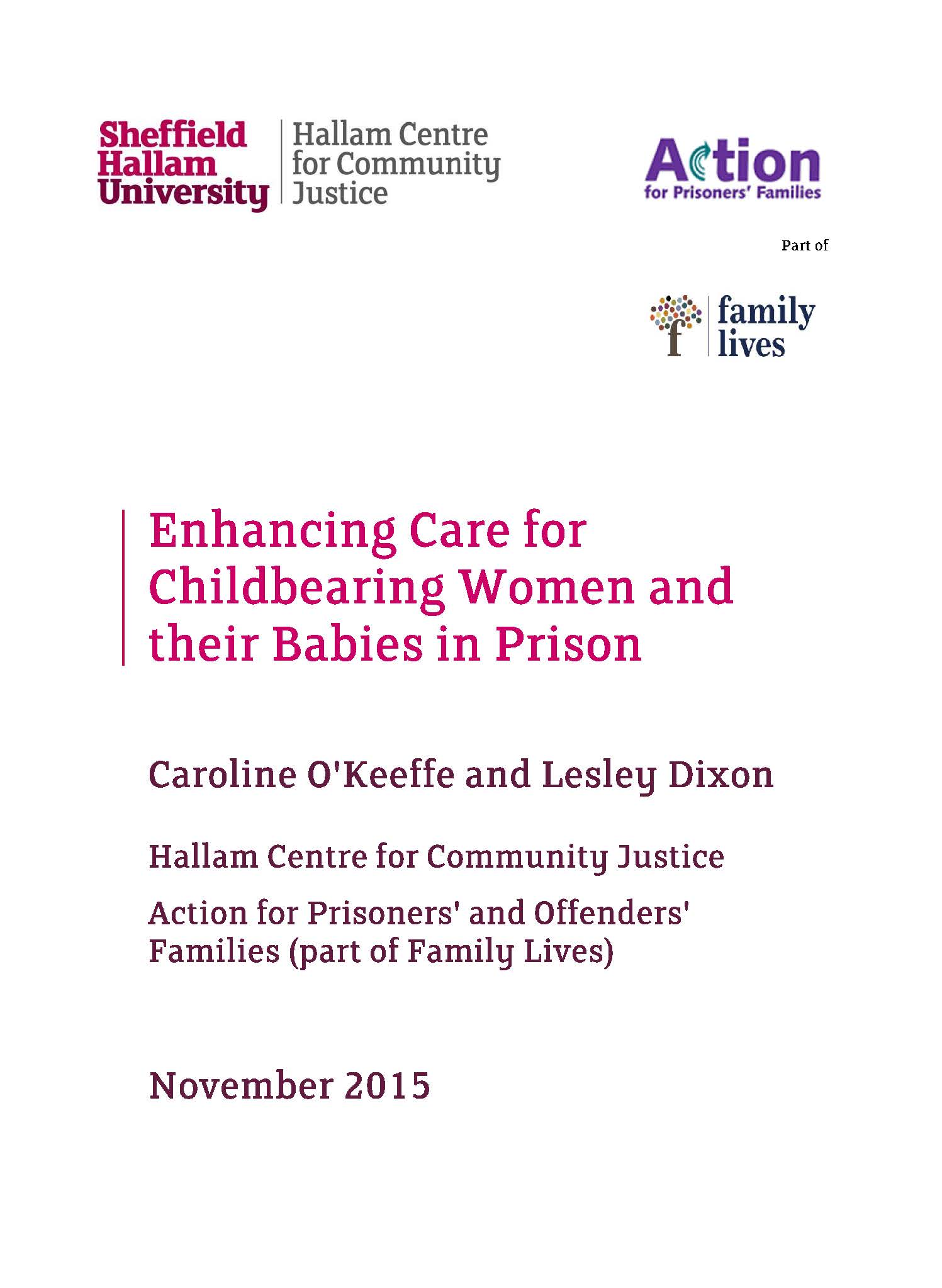A new report: ‘Enhancing Care for Childbearing Women and their Babies in Prison’ launched by Action for Prisoners’ and Offenders’ Families (APOF), and the Hallam Centre for Community Justice highlights how mothers and babies in prison can often benefit from residing in a supportive Mother and Baby Unit (MBU). However, for reasons revealed in the report, places are not always available or taken up. The report draws attention to the often relentless and complex struggles of mothers in prison which are compounded by the high levels of mental illness, drug and alcohol abuse, self-harm and domestic abuse amongst this group. Women whose babies have been taken into statutory care during a prison sentence are particularly vulnerable and often reluctant to engage with services. The report also outlines some of the problems faced by mothers when they are released from prison and stresses the need for through the gate support.
The Right Honourable Baroness Corston, who published the influential review of vulnerable women in the criminal justice system in 2007 and has written the foreword to this report writes that: “MBUs, and how they fit into the treatment of women prisoners, have been the subject of debate in CJS circles for decades, but there has been no serious analysis or overview for many years. This is not a straightforward subject to tackle…..this report does an excellent job of putting MBUs and mothers in prison firmly back on the agenda”.
The report is particularly timely given the current upheaval and uncertainty in the criminal justice system as a result of the Government’s Transforming Rehabilitation reforms. With the closure of some MBUs and other MBUs under threat, the future for mothers and babies in prison is uncertain and the options for many women in prison, particularly those serving longer sentences, to keep their families together remain extremely limited. The report highlights some of the challenges and also opportunities for caring for mothers in prison and their babies, within the context of these changes.
The report makes a series of recommendations including:
- Effective and tailored alternative sentencing options for mothers of young children need to be available to sentencers.
- Preferably when a custodial sentence is considered likely pre-sentence, or otherwise as soon as possible after a custodial sentence has been given women need early access to relevant, appropriate and timely information about MBUs in order to make an informed decision about child placement.
- The benefits of MBUs need to be actively promoted to external staff, to mothers and also to non MBU prison staff.
- Mothers in prison need programmes which address self-esteem and healthy relationships.
- Intensive support packages, with a strong therapeutic focus should be put in place for women who have had their babies adopted, during the mother’s prison sentence and continued post-release.
- Release from prison needs to be viewed as a process not as an event. The sentence planning of women prisoners who are also mothers needs to include parenting support on release and a ‘whole family’ approach where appropriate.
- Programmes which encourage healthy attachment and which have a therapeutic element should be developed and funded at the same time as through the gate programmes and funding for longitudinal evaluation of these programmes.
- Transforming Rehabilitation reforms could usefully be seen as an opportunity to encourage and promote joint models of working (e.g. between criminal justice system, social care, children and family services, health services, housing). A more joined up commissioning framework could create a sense of shared responsibility for mothers and babies in prison and on release.
Anastasia de Waal, Chair of Family Lives, who run APOF said:
“It is clear there are no easy answers or ‘quick fixes’ in caring for mothers in prison and their babies. The government should urgently examine why the very limited number of Mother and Baby Units, a diminishing but potentially vital and valuable resource in prisons, aren’t being fully utilised. Hopefully the report can create the opportunity for reflection, will flag up the potential for positive change in both policy and practice. It is vital that all training provision around childbearing women and their babies (and indeed women offenders more generally) seeks to heighten awareness of the link between women’s often dual role as victim and offenders.”

